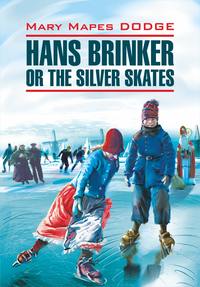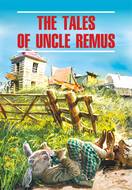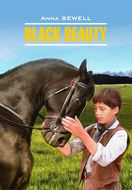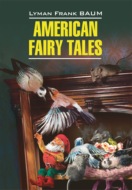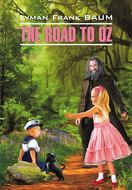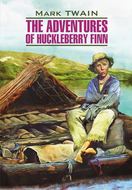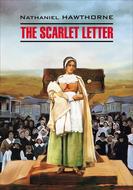Kitabı oku: «Hans Brinker, or the Silver Skates / Серебряные коньки. Книга для чтения на английском языке»
To my father James J. Mapes this book is dedicated in gratitude and love
Комментарии и словарь Е. Г. Тигонен
© КАРО, 2013
Об авторе
Американская писательница Мэри Мэйпс Додж (1838–1905) родилась в семье известного изобретателя и ученого-химика Джеймса Дж. Мэйпса, который привил своим шестерым детям любовь к чтению. В 20 лет она вышла замуж за известного адвоката Уильяма Доджа, родила двоих сыновей и вскоре овдовела. Потеряв мужа, она начала писать книги, вначале для своих детей, а потом стала издавать их. Ее перу принадлежат несколько томов стихов и детской прозы, оказавших большое влияние на американскую детскую литературу. Додж была очень любима маленькими читателями в Америке. Ее имя стало одним из самых известных среди детских писателей.
У писательницы было одно подлинное увлечение – Голландия. Она собирала самые разнообразные сведения – о флоре и фауне, об архитектуре и живописи, истории и литературе этой страны, об обычаях и нравах голландцев. Постепенно этот материал превратился в увлекательную историю, которую она пересказывала перед сном своим сыновьям. Так появилась знаменитая книга «Ханс Бринкер, или Серебряные коньки». Книга впервые вышла в свет в 1865 году и за короткий срок стала бестселлером, ее перевели на множество языков, в том числе на русский (русский перевод называется «Серебряные коньки»).
С 1873 года Додж издавала популярный детский журнал «Святой Николай» (St. Nicolas), в котором частенько печатались такие классики детской литературы, как Марк Твен, Брет Гарт, Роберт Льюис Стивенсон и Редьярд Киплинг. После смерти Мэри Додж издательское дело продолжили ее сыновья.
Hans and Gretel
On a bright December morning long ago, two thinly clad1 children were kneeling upon the bank of a frozen canal in Holland.
The sun had not yet appeared, but the gray sky was parted near the horizon, and its edges shone crimson with the coming day. Most of the good Hollanders were enjoying a placid morning nap. Even Mynheer2 von Stoppelnoze, that worthy old Dutchman, was still slumbering “in beautiful repose”.
Now and then some peasant woman, poising a well-filled basket upon her head, came skimming over the glassy surface of the canal; or a lusty boy, skating to his day’s work in the town, cast a good-natured grimace toward the shivering pair as he flew along.
Meanwhile, with many a vigorous puff and pull, the brother and sister, for such they were, seemed to be fastening something to their feet – not skates, certainly, but clumsy pieces of wood narrowed and smoothed at their lower edge, and pierced with holes, through which were threaded strings of rawhide.
These queer-looking affairs had been made by the boy Hans. His mother was a poor peasant woman, too poor even to think of such a thing as buying skates for her little ones. Rough as these were, they had afforded the children many a happy hour upon the ice. And now, as with cold, red fingers our young Hollanders tugged at the strings – their solemn faces bending closely over their knees – no vision of impossible iron runners came to dull the satisfaction glowing within.
In a moment the boy arose and, with a pompous swing of the arms and a careless “Come on, Gretel,” glided easily across the canal.
“Ah, Hans,” called his sister plaintively, “this foot is not well yet. The strings hurt me on last market day, and now I cannot bear them tied in the same place.”
“Tie them higher up, then,” answered Hans, as without looking at her he performed a wonderful cat’s cradle step on the ice3.
“How can I? The string is too short.”
Giving vent to a good-natured Dutch whistle, the English of which was4 that girls were troublesome creatures, he steered toward her.
“You are foolish to wear such shoes, Gretel, when you have a stout leather pair. Your klompen5 would be better than t hes e.”
“Why, Hans! Do you forget? The father threw my beautiful new shoes in the fire. Before I knew what he had done, they were all curled up in the midst o the burning peat. I can skate with these, but not with my wooden ones. Be careful now – ”
Hans had taken a string from his pocket. Humming a tune as he knelt beside her, he proceeded to fasten Gretel’s skate with all the force of his strong young arm.
“Oh! oh!” she cried in real pain.
With an impatient jerk Hans unwound the string. He would have cast it on the ground in true big-brother style, had he not just then spied a tear6 trickling down his sister’s cheek.
“I’ll fix it – never fear,” he said with sudden tenderness, “but we must be quick. The mother will need us soon.”
Then he glanced inquiringly about him, first at the ground, next at some bare willow branches above his head, and finally at the sky, now gorgeous with streaks of blue, crimson, and gold.
Finding nothing in any of these localities to meet his need, his eye suddenly brightened as, with the air of a fellow who knew what he was about, he took off his cap and, removing the tattered lining, adjusted it in a smooth pad over the top of Gretel’s worn-out shoe.
“Now,” he cried triumphantly, at the same time arranging the strings as briskly as his benumbed fingers would allow, “can you bear some pulling?”
Gretel drew up her lips as if to say, “Hurt away,” but made no further response.
In another moment they were all laughing together, as hand in hand they flew along the canal, never thinking whether the ice would bear them or not, for in Holland ice is generally an all-winter affair7. It settles itself upon the water in a determined kind of way, and so far from growing thin and uncertain every time the sun is a little severe upon it, it gathers its forces day by day and flashes defiance to every beam.
Presently, squeak! squeak! sounded something beneath Hans’ feet. Next his strokes grew shorter, ending oftimes with a jerk, and finally, he lay sprawling upon the ice, kicking against the air with many a fantastic flourish.
“Ha! ha!” laughed Gretel. “That was a fine tumble!” But a tender heart was beating under her coarse blue jacket, and even as she laughed, she came, with a graceful sweep, close to her prostrate brother.
“Are you hurt, Hans? Oh, you are laughing! Catch me now!” And she darted away, shivering no longer, but with cheeks all aglow and eyes sparkling with fun.
Hans sprang to his feet and started in brisk pursuit, but it was no easy thing to catch Gretel. Before she had traveled very far, her skates, too, began to squeak.
Believing that discretion was the better part of valor, she turned suddenly and skated into her pursuer’s arms.
“Ha! ha! I’ve caught you!” cried Hans.
“Ha! ha! I caught YOU,” she retorted, struggling to free herself.
Just then a clear, quick voice was heard calling, “Hans! Gretel!”
“It’s the mother,” said Hans, looking solemn in an instant.
By this time the canal was gilded with sunlight. The pure morning air was very delightful, and skaters were gradually increasing in numbers. It was hard to obey the summons. But Gretel and Hans were good children; without a thought of yielding to the temptation to linger, they pulled off their skates, leaving half the knots still tied. Hans, with his great square shoulders and bushy yellow hair, towered high above his blue-eyed little sister as they trudged homeward. He was fifteen years old and Gretel was only twelve. He was a solid, hearty-looking boy, with honest eyes and a brow that seemed to bear a sign GOODNESS WITHIN just as the little Dutch zomerhuis8 wears a motto over its portal. Gretel was lithe and quick; her eyes had a dancing light in them, and while you looked at her cheek the color paled and deepened just as it does upon a bed of pink and white blossoms when the wind is blowing.
As soon as the children turned from the canal, they could see their parents’ cottage. Their mother’s tall form, arrayed in jacket and petticoat and close-fitting cap, stood, like a picture, in the crooked frame of the doorway. Had the cottage been a mile away, it would still have seemed near. In that flat country every object stands out plainly in the distance; the chickens show as distinctly as the windmills. Indeed, were it not for the dikes and the high banks of the canals, one could stand almost anywhere in middle Holland without seeing a mound or a ridge between the eye and the “jumping-off place.”
None had better cause to know the nature of these same dikes than Dame9 Brinker and the panting youngsters now running at her call. But before stating WHY, let me ask you to take a rocking-chair trip10 with me to that far country where you may see, perhaps for the first time, some curious things that Hans and Gretel saw every day.
Holland
Holland is one of the queerest countries under the sun. It should be called Odd-land or Contrary-land, for in nearly everything it is different from the other parts of the world. In the first place, a large portion of the country is lower than the level of the sea. Great dikes, or bulwarks, have been erected at a heavy cost of money and labor to keep the ocean where it belongs. On certain parts of the coast it sometimes leans with all its weight against the land, and it is as much as the poor country can do to stand the pressure. Sometimes the dikes give way or spring a leak, and the most disastrous results ensue. They are high and wide, and the tops of some of them are covered with buildings and trees. They have even fine public roads on them, from which horses may look down upon wayside cottages. Often the keels of floating ships are higher than the roofs of the dwellings. The stork clattering to her young on the house peak may feel that her nest is lifted far out of danger, but the croaking frog in neighboring bulrushes is nearer the stars than she. Water bugs dart backward and forward above the heads of the chimney swallows, and willow trees seem drooping with shame, because they cannot reach as high as the reeds nearby.
Ditches, canals, ponds, rivers, and lakes are everywhere to be seen. High, but not dry, they shine in the sunlight, catching nearly all the bustle and the business, quite scorning the tame fields stretching damply beside them. One is tempted to ask, “Which is Holland – the shores or the water?” The very verdure that should be confined to the land has made a mistake and settled upon the fish ponds. In fact, the entire country is a kind of saturated sponge or, as the English poet, Butler11, called it,
A land that rides at anchor, and is moor’d,
In which they do not live, but go aboard.
Persons are born, live, and die, and even have their gardens on canal-boats. Farmhouses, with roofs like great slouched hats pulled over their eyes, stand on wooden legs with a tucked-up sort of air, as if to say, “We intend to keep dry if we can.” Even the horses wear a wide stool on each hoof as if to lift them out of the mire. In short, the landscape everywhere suggests a paradise for ducks. It is a glorious country in summer for barefoot girls and boys. Such wading! Such mimic ship sailing! Such rowing, fishing, and swimming! Only think of a chain of puddles where one can launch chip boats all day long and never make a return trip! But enough. A full recital would set all young America rushing in a body toward12 the Zuider Zee13.
Dutch cities seem at first sight to be a bewildering jungle of houses, bridges, churches, and ships, sprouting into masts, steeples, and trees. In some cities vessels are hitched like horses to their owners’ doorposts and receive their freight from the upper windows. Mothers scream to Lodewyk and Kassy not to swing on the garden gate for fear they may be drowned! Water roads are more frequent there than common roads and railways; water fences in the form of lazy green ditches enclose pleasure-ground, farm, and garden.
Sometimes fine green hedges are seen, but wooden fences such as we have in America are rarely met with in Holland. As for stone fences, a Dutchman would lift his hands with astonishment at the very idea. There is no stone there, except for those great masses of rock that have been brought from other lands to strengthen and protect the coast. All the small stones or pebbles, if there ever were any, seem to be imprisoned in pavements or quite melted away. Boys with strong, quick arms may grow from pinafores to full beards14 without ever finding one to start the water rings or set the rabbits flying. The water roads are nothing less than canals intersecting the country in every direction. These are of all sizes, from the great North Holland Ship Canal, which is the wonder of the world, to those which a boy can leap. Water omnibuses, called trekschuiten15, constantly ply up and down these roads for the conveyance of passengers; and water drays, called pakschuyten16, are used for carrying fuel and merchandise. Instead of green country lanes, green canals stretch from field to barn and from barn to garden; and the farms, or polders17, as they are termed, are merely great lakes pumped dry. Some of the busiest streets are water, while many of the country roads are paved with brick. The city boats with their rounded sterns, gilded prows, and gaily painted sides, are unlike any others under the sun; and a Dutch wagon, with its funny little crooked pole, is a perfect mystery of mysteries.
“One thing is clear,” cries Master Brightside, “the inhabitants need never be thirsty.” But no, Odd-land is true to itself still. Notwithstanding the sea pushing to get in, and the lakes struggling to get out, and the overflowing canals, rivers, and ditches, in many districts there is no water fit to swallow; our poor Hollanders must go dry or drink wine and beer or send far into the inland to Utrecht and other favored localities for that precious fluid older than Adam yet younger than the morning dew. Sometimes, indeed, the inhabitants can swallow a shower when they are provided with any means of catching it; but generally they are like the albatross-haunted sailors in Coleridge’s18 famous poem The Ancient Mariner. They see
Water, water, everywdere,
Nor any drop to drink!
Great flapping windmills all over the country make it look as if flocks of huge sea birds were just settling upon it. Everywhere one sees the funniest trees, bobbed into fantastical shapes, with their trunks painted a dazzling white, yellow, or red. Horses are often yoked three abreast. Men, women, and children go clattering about in wooden shoes with loose heels; peasant girls who cannot get beaux for love, hire them for money to escort them to the kermis19, and husbands and wives lovingly harness themselves side by side on the bank of the canal and drag their pakschuyts to market.
Another peculiar feature of Holland is the dune, or sand hill. These are numerous along certain portions of the coast. Before they were sown with coarse reed grass and other plants, to hold them down, they used to send great storms of sand over the inland. So, to add to the oddities, the farmers sometimes dig down under the surface to find their soil, and on windy days DRY SHOWERS (of sand) often fall upon fields that have grown wet under a week of sunshine.
In short, almost the only familiar thing we Yankees can meet with in Holland is a harvest song which is quite popular there, though no linguist could translate it. Even then we must shut our eyes and listen only to the tune, which I leave you to guess.
Yanker didee dudel down
Didee dudel lawnter;
Yankee viver, voover, vown,
Botermelk and Tawnter!
On the other hand, many of the oddities of Holland serve only to prove the thrift and perseverance20 of the people. There is not a richer or more carefully tilled garden spot in the whole world than this leaky, springy little country. There is not a braver, more heroic race than its quite, passive-looking inhabitants. Few nations have equalled it in important discoveries and inventions; none has excelled it in commerce, navigation, learning, and science – or set as noble examples in the promotion of education and public charities; and none in proportion to its extent has expended more money or labor upon public works.
Holland has its shining annals of noble and illustrious men and women; its grand, historic records of patience, resistance, and victory; its religious freedom; its enlightened enterprise; its art, music, and literature. It has truly been called “the battlefield of Europe”; as truly may we consider it the asylum of the world21, for the oppressed of every nation have there found shelter and encouragement. If we Americans, who after all are homeopathic preparations of Holland stock, can laugh at the Dutch, and call them human beavers and hint that their country may float off any day at high tide, we can also feel proud, and say they have proved themselves heroes and that their country will not float off while there is a Dutchman left to grapple it.
There are said to be at least ninety-nine hundred large windmills in Holland, with sails ranging from eighty to one hundred and twenty feet long. They are employed in sawing timber, beating hemp, grinding, and many other kinds of work; but their principal use is for pumping water from the lowlands into the canals, and for guarding against the inland freshets that so often deluge the country. Their yearly cost is said to be nearly ten million dollars. The large ones are of great power. The huge circular tower, rising sometimes from the midst of factory buildings, is surmounted with a smaller one tapering into a caplike roof. This upper tower is encircled at its base with a balcony, high above which juts the axis turned by its four prodigious ladder-back sails.
Many of the windmills are primitive affairs, seeming sadly in need of Yankee “improvements,” but some of the new ones are admirable. They are constructed so that by some ingenious contrivance they present their fans, or wings, to the wind in precisely the right direction to work with the requisite power. In other words, the miller may take a nap and feel quite sure that his mill will study the wind and make the most of it, until he wakens. Should there be but a slight current of air, every sail will spread itself to catch the faintest breath, but if a heavy “blow” should come, they will shrink at its touch, like great mimosa leaves, and only give it half a chance to move them.
One of the old prisons of Amsterdam, called the Rasphouse22, because the thieves and vagrants who were confined there were employed in rasping logwood, had a cell for the punishment of lazy prisoners. In one corner of this cell was a pump, and in another, an opening through which a steady stream of water was admitted. The prisoner could take his choice, either to stand still and be drowned or to work for dear life at the pump23 and keep the flood down until his jailer chose to relieve him. Now it seems to me that, throughout Holland, nature has introduced this little diversion on a grand scale24. The Dutch have always been forced to pump for their very existence and probably must continue to do so to the end of time.
Every year millions of dollars are spent in repairing dikes and regulating water levels. If these important duties were neglected, the country would be uninhabitable. Already dreadful consequences, as I have said, have followed the bursting of these dikes. Hundreds of villages and towns have from time to time been buried beneath the rush of waters, and nearly a million persons have been destroyed. One of the most fearful inundations ever known occurred in the autumn of the year 1570. Twenty-eight terrible floods had before that time overwhelmed portions of Holland, but this was the most terrible of all. The unhappy country had long been suffering under Spanish tyranny; now, it seemed, the crowning point was given to its troubles. When we read Motley’s25 history of the rise of the Dutch republic, we learn to revere the brave people who have endured, suffered, and dared so much.
Mr. Motley, in his thrilling account of the great inundation, tells us how a long-continued and violent gale had been sweeping the Atlantic waters into the North Sea, piling them against the coasts of the Dutch provinces; how the dikes, taxed beyond their strength, burst in all directions; how even the Hand-bos, a bulwark formed of oaken piles, braced with iron, moored with heavy anchors, and secured by gravel and granite, was snapped to pieces like thread; how fishing boats and bulky vessels floating up into the country became entangled among the trees or beat in the roofs and walls of dwellings, and how, at last, all Friesland26 was converted into an angry sea. “Multitudes of men, women, children, of horses, oxen, sheep, and every domestic animal, were struggling in the waves in every direction. Every boat and every article which could serve as a boat was eagerly seized upon. Every house was inundated; even the graveyards gave up their dead. The living infant in his cradle and the long-buried corpse in his coffin floated side by side. The ancient flood seemed about to be renewed. Everywhere, upon the tops of trees, upon the steeples of churches, human beings were clustered, praying to God for mercy and to their fellow men for assistance. As the storm at last was subsiding, boats began to ply in every direction, saving those who were struggling in the water, picking fugitives from roofs and treetops, and collecting the bodies of those already drowned.” No less than one hundred thousand human beings had perished in a few hours. Thousands upon thousands of dumb creatures lay dead upon the waters, and the damage to property was beyond calculation.
Robles, the Spanish governor, was foremost in noble efforts to save life and lessen the horrors of the catastrophe. He had previously been hated by the Dutch because of his Spanish or Portuguese blood, but by his goodness and activity in their hour of disaster, he won all hearts to gratitude. He soon introduced an improved method of constructing the dikes and passed a law that they should in future be kept up by the owners of the soil. There were fewer heavy floods from this time, though within less than three hundred years, six fearful inundations swept over the land.
In the spring there is always great danger of inland freshets, especially in times of thaw, because the rivers, choked with blocks of ice, overflow before they can discharge their rapidly rising waters into the ocean. Adding to this that the sea chafes and presses against the dikes, it is no wonder that Holland is often in a state of alarm. The greatest care is taken to prevent accidents. Engineers and workmen are stationed all along in threatened places, and a close watch is kept up night and day27. When a general signal of danger is given, the inhabitants all rush to the rescue, eager to combine against their common foe. As, everywhere else, straw is supposed to be of all things the most helpless in the water, of course, in Holland, it must be rendered the mainstay against a rushing tide. Huge straw mats are pressed against the embankments, fortified with clay and heavy stone, and once adjusted, the ocean dashes against them in vain.
Raff Brinker, the father of Gretel and Hans, had for years been employed upon the dikes. It was at the time of a threatened inundation, when in the midst of a terrible storm, in darkness and sleet, the men were laboring at a weak spot near the Veermyk sluice28, that he fell from the scaffolding and became insensible. From that hour he never worked again; though he lived on, mind and memory were gone.
Gretel could not remember him otherwise than as the strange, silent man whose eyes followed her vacantly whichever way she turned, but Hans had recollections of a hearty, cheerful-voiced father who was never tired of bearing him upon his shoulder and whose careless song still seemed echoing near when he lay awake at night and listened.
thinly clad – (разг.) бедно одетые
[Закрыть]
Mynheer – (голл.) господин
[Закрыть]
cat’s cradle step on the ice – (разг.) «восьмерки» на льду
[Закрыть]
the English of which was – (разг.) что в переводе означало
[Закрыть]
klompen – (голл.) деревянные башмаки (примеч. авт.)
[Закрыть]
had he not just then spied a tear – (разг.) если бы в тот момент не увидел слезу
[Закрыть]
is generally an all-winter affair – (разг.) обычно стоит (держится) всю зиму
[Закрыть]
zomerhuis – (голл.) летний домик; павильон, в котором летом отдыхают, но не живут (примеч. авт.)
[Закрыть]
Dame – (голл.) тетушка
[Закрыть]
to take a rocking-chair trip – (разг.) мысленно перенестись
[Закрыть]
Butler – Сэмюэл Батлер (1612–1680), английский поэт-сатирик
[Закрыть]
rushing in a body toward – (разг.) всей толпой помчатся
[Закрыть]
Zuider Zee – (голл.) Зёйдерзее, бывший мелководный залив в Северном море, в северо-западной части Нидерландов
[Закрыть]
from pinafores to full beards – (разг.) от младенцев до седобородых старцев (с младенчества до старости)
[Закрыть]
trekschuiten – (голл.) суда, плавающие по каналам, их тянут лошади, идущие по берегу; имеют первый и второй классы для пассажиров (примеч. авт.)
[Закрыть]
pakschuyten – (голл.) водные повозки, перевозят топливо и товары
[Закрыть]
polders – (голл.) поля
[Закрыть]
Coleridge – Сэмюэл Тейлор Колридж (1772–1834), английский поэт-романтик; самое известное его произведение – поэма «Старый мореход»
[Закрыть]
kermis – (голл.) ярмарка
[Закрыть]
serve only to prove the thrift and perseverance – (разг.) служат доказательством бережливости и трудолюбия
[Закрыть]
the asylum of the world – (зд.) убежище, прибежище для всего мира
[Закрыть]
Rasphouse – (голл.) Скоблильня
[Закрыть]
to work for dear life at the pump – (разг.) качать насос изо всех сил ради спасения жизни
[Закрыть]
on a grand scale – (разг.) в большом масштабе
[Закрыть]
Motley – Джон Литроп Мотли (1814–1877), американский историк, дипломат
[Закрыть]
Friesland – Фрисландия, провинция в северной части Голландии
[Закрыть]
a close watch is kept up night and day – (уст.) бдительное дежурство не прекращается ни днем, ни ночью
[Закрыть]
a weak spot near the Veermyk sluice – (разг.) ненадежный участок около шлюза Веермейк
[Закрыть]
